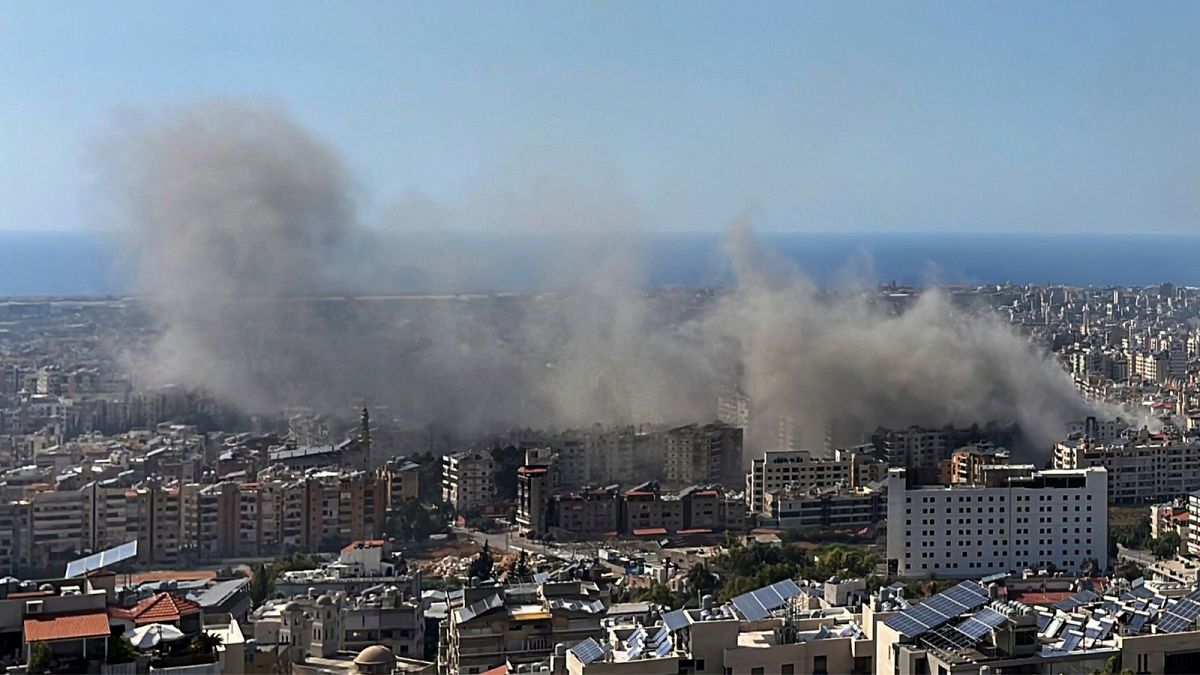Israel has continued its attacks on Lebanon’s capital city, Beirut, as its troops battle Hezbollah fighters in southern Lebanon. The Israeli Defence Forces (IDF) claim to have struck Hezbollah’s intelligence headquarters in the city, targeting a building housing a Hezbollah-affiliated medical center, resulting in the death of seven Hezbollah members. This attack followed a previous strike on an apartment building in central Beirut that killed nine people, according to the Lebanese Health Ministry. The IDF stated that the Intelligence Corps of Hezbollah is responsible for gathering intelligence about the IDF and Israel, justifying their targeting of the headquarters.
The recent attacks in Beirut come amidst ongoing conflicts between Israel and Hezbollah in southern Lebanon. The Israeli military has reported the deaths of eight soldiers in the conflict so far. In another tragic incident, an Israeli strike wounded four paramedics and killed a Lebanese army soldier as they were evacuating wounded individuals from the south, near the village of Taybeh. The Lebanese Red Cross stated that the convoy was targeted despite coordinating its movements with UN peacekeepers, and there has been no immediate comment from the Israeli military regarding this incident. These events highlight the escalating violence in the region as the conflict between Israel and Hezbollah intensifies.
Israel’s airstrikes in Beirut have raised concerns about the impact on civilians and the humanitarian situation in Lebanon. The attack on an apartment building in central Beirut and the targeting of a Hezbollah-affiliated medical center have resulted in a significant number of casualties. The Lebanese Health Ministry has confirmed the deaths of nine people in the apartment building attack, and seven Hezbollah members in the medical center attack. These incidents illustrate the devastating consequences of the conflict on civilians, as they face the threat of violence and instability in their daily lives.
The strikes in Beirut are part of Israel’s broader military campaign against Hezbollah in Lebanon, aiming to weaken the Iranian-backed militant group. The Israeli military has been conducting ground incursions into southern Lebanon, targeting areas where Hezbollah has a strong presence. The ongoing conflict has resulted in casualties on both sides, with Israeli soldiers and Lebanese individuals being wounded or killed in the violent clashes. The situation remains volatile, with the potential for further escalation as both sides continue to engage in hostilities.
The attacks on Hezbollah targets in Beirut mark a significant escalation in the conflict between Israel and the militant group. The strikes on the intelligence headquarters and the medical center have targeted key structures affiliated with Hezbollah, impacting the group’s operations and capabilities. The Israeli military’s actions are part of a strategic effort to weaken Hezbollah’s influence and ability to threaten Israel’s security. However, the consequences of these attacks extend beyond military objectives, as civilians bear the brunt of the violence and instability caused by the conflict. The international community has voiced concerns about the impact of the conflict on civilian populations and called for a peaceful resolution to the ongoing hostilities.
As the conflict between Israel and Hezbollah continues to unfold in Lebanon, the need for a diplomatic solution to end the violence and restore stability in the region becomes increasingly urgent. The attacks on Beirut, including the recent strikes on the intelligence headquarters and the medical center, highlight the destructive consequences of the ongoing conflict on civilians and infrastructure. It is essential for all parties involved to prioritize dialogue and negotiations to find a peaceful resolution and prevent further loss of life. The international community plays a crucial role in facilitating diplomatic efforts and urging all parties to cease hostilities and engage in constructive dialogue to achieve a lasting peace in Lebanon and the wider region.











